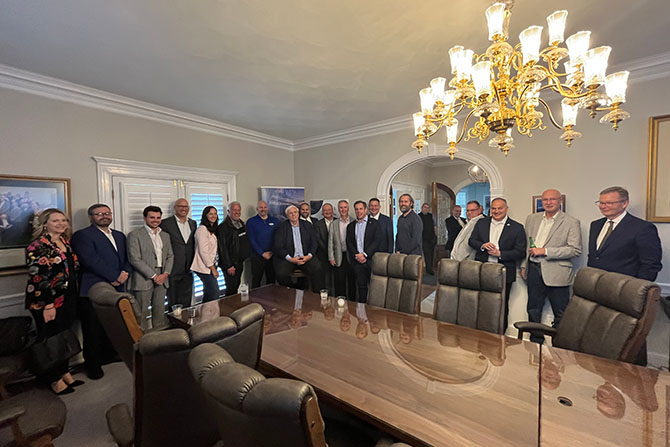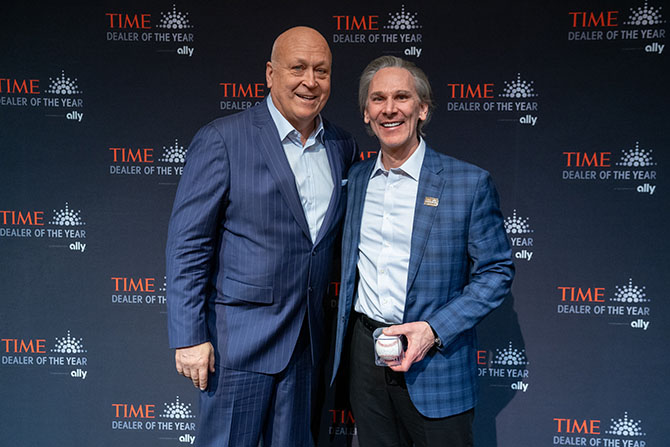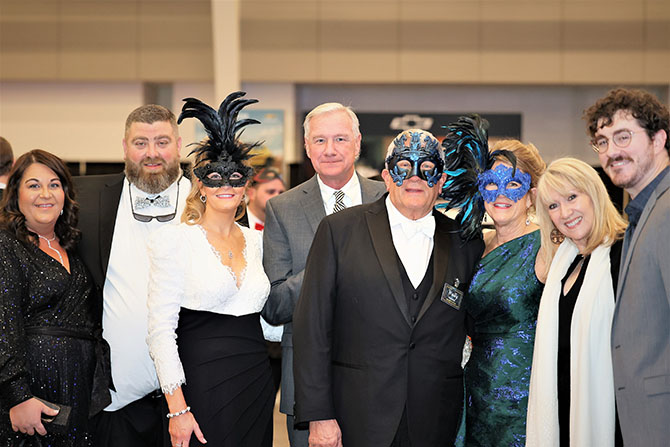Happy spring, everyone. I hope everyone is excited to come out of the cloudy and cold winter and look forward to the sun and warmth. Sounds like the car-buying season. Great news: For the second time in three years, the West Virginia Dealers Association has been successful in obtaining significant changes to your franchise law. Senate Bill 173 was passed unanimously in the West Virginia Senate and on an 87-13 vote in the House of Delegates. Congratulations to Jared and all involved in helping pass West Virginia’s new franchise law.
I have the pleasure of getting to deliver the particulars of this good news. We have some exciting changes that protect the franchise model in West Virginia and provide for a West Virginia dealer to maintain control over their West Virginia business. Here are our changes, which become effective June 5, 2024:
- Right of First Refusal. West Virginia became the 12th state to prohibit the manufacturer’s right of first refusal. This was a hard fault victory. Over the last five (5) years, there have been numerous times that I have personally been involved in transactions in which a manufacturer exercised a right of first refusal against a West Virginia dealer who was purchasing a store. These stores are then assigned to out-of-state entities and take away a business owner’s right to sell their business to whomever they wish. More importantly, our West Virginia dealers wish to sell to individuals who will continue to serve their West Virginia community and provide a smooth change for their employees. These rights were previously lost under the old statute. This preserves your right as a dealer to control your business.
- Anti-Agency Laws. This is what I am personally most excited about: protecting the franchise model, which is consumer-friendly and allows for intra-brand competition. The changes this year preserve the franchise model for our West Virginia dealers. The first change prohibits a manufacturer, through any program, agreement, incentive or otherwise, from requiring the following: (a) maintaining a website in which the manufacturer negotiates prices or other terms of sale; (b) retaining ownership of motor vehicles and using the dealer for a consignment arrangement or as a delivery agent; and (c) reserving the right to negotiate any terms of sale of the motor vehicle.
A second change was more specific to the reservation system which has become so popular over the last few years. Our new law states that a manufacturer, through a retail vehicle sale or reservation system, is specifically prohibited from “interfering with” a dealer pertaining to setting price, trade-in value, financing terms or the sale of voluntary protection products. - Unilateral Change in Sales and Service Agreements. Another significant change impacts all Sales and Service Agreements. Our West Virginia franchise law now specifically prohibits any term or condition of the “dealer agreement,” which allows a manufacturer a unilateral right to change the agreement. The provision is now considered null and void. After the effective date, any amendment concerning the purchase, sale, lease or service of any new motor vehicle must be agreed to by the dealer.
How many years have our West Virginia dealers had to contend with the constant change of “dealer agreements,” which is defined quite broadly in West Virginia to include not only the specific Sales and Service Agreement but all agreements related to the sale and service of motor vehicles? This is now stopped. - Manufacturer New Product Lines. As you are aware, over the last few years, manufacturers have been threatening not to allow their same-line dealers to sell a new model of motor vehicle that exists under the same manufacturer’s badge or line. By way of examples, we have seen this with Ford and their electric vehicles, and Volkswagen has strongly suggested the same with its new Scout model. West Virginia’s new franchise law now states that a manufacturer cannot refuse to offer to its same-line make dealers all models, including any model with a separate label or badge, regardless of its “means of propulsion.” Importantly, this includes a new line established by a subsidiary or an affiliated company in which the manufacturer owns at least 25%.
In practice, this should stop this artificial arbitrary line of manufacturers making claims that a dealer can not sell an electric vehicle merely because it is electric, i.e., its “means of propulsion.” This also prevents a manufacturer from attempting to prevent its long-time dealer body from selling a new model or line solely because a new model may be marketed as electric or brought to market through a subsidiary or affiliate owned by the manufacturer already doing business in West Virginia. - Protection of Facility Upgrade Investments. West Virginia has one of the strongest laws in the country on protecting a dealer’s investment in facility upgrades. Our West Virginia franchise law protects a dealer’s investment in facility image requirements for 15 years and further grandfathers a dealer into any program or incentive related to the facility for 15 years after completion. Now, we take it a step further. If a dealer is selling his store and is still within the 15-year safe harbor, the buying dealer is able to obtain the store with the same protection for the remainder of the 15-year period. This prevents a selling dealer’s investment from being devalued by a manufacturer demanding the buying dealer spend millions of dollars on new facility image upgrades causing the buying dealer to offer less to the selling dealer.
- Warranty Service Reimbursement. The association was able to make a few small changes that, we hope, you will find provide significant protection and help ensure a fair return for your service technicians. First, a dealer must now be reimbursed for “time communicating with the manufacturer” for warranty repair and recalls. This work has been an overlooked item for many years but has become more significant and frequent over the years with the complexity of the motor vehicle.
Second, when there is a disagreement over the warranty time allowance, the dealer’s request for modification is now to be “presumed reasonable.” This places a greater burden upon the manufacturer to challenge a dealer who makes the request for modification when the pre-determined guide simply is not practical and does not reflect reality.Last, when requesting a submitted labor rate or parts markup, our new franchise law clarifies that a manufacturer shall only have 30 days to provide a detailed analysis of why the requested labor rate or parts markup is not reasonable or it will come into effect automatically. This cleared up any ambiguity that may have existed in our prior statute.
Again, congratulations to the association on a highly successful legislative year. Stay tuned for emails and updates from the association on these new changes, but if you have any questions, please don’t hesitate to call me or the association for assistance.









